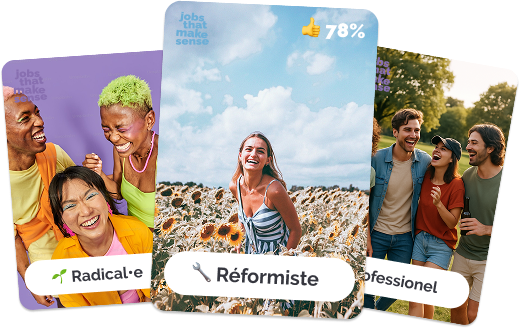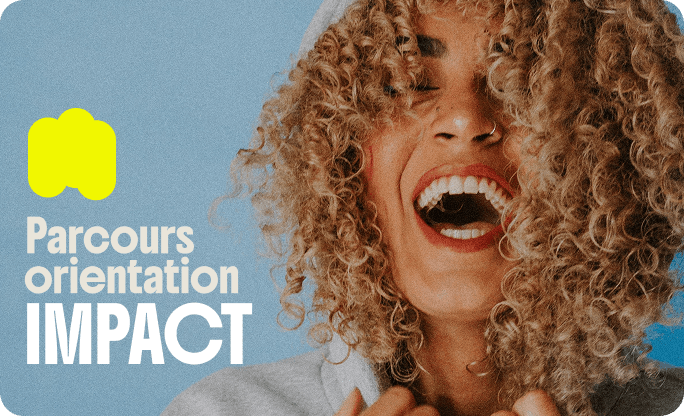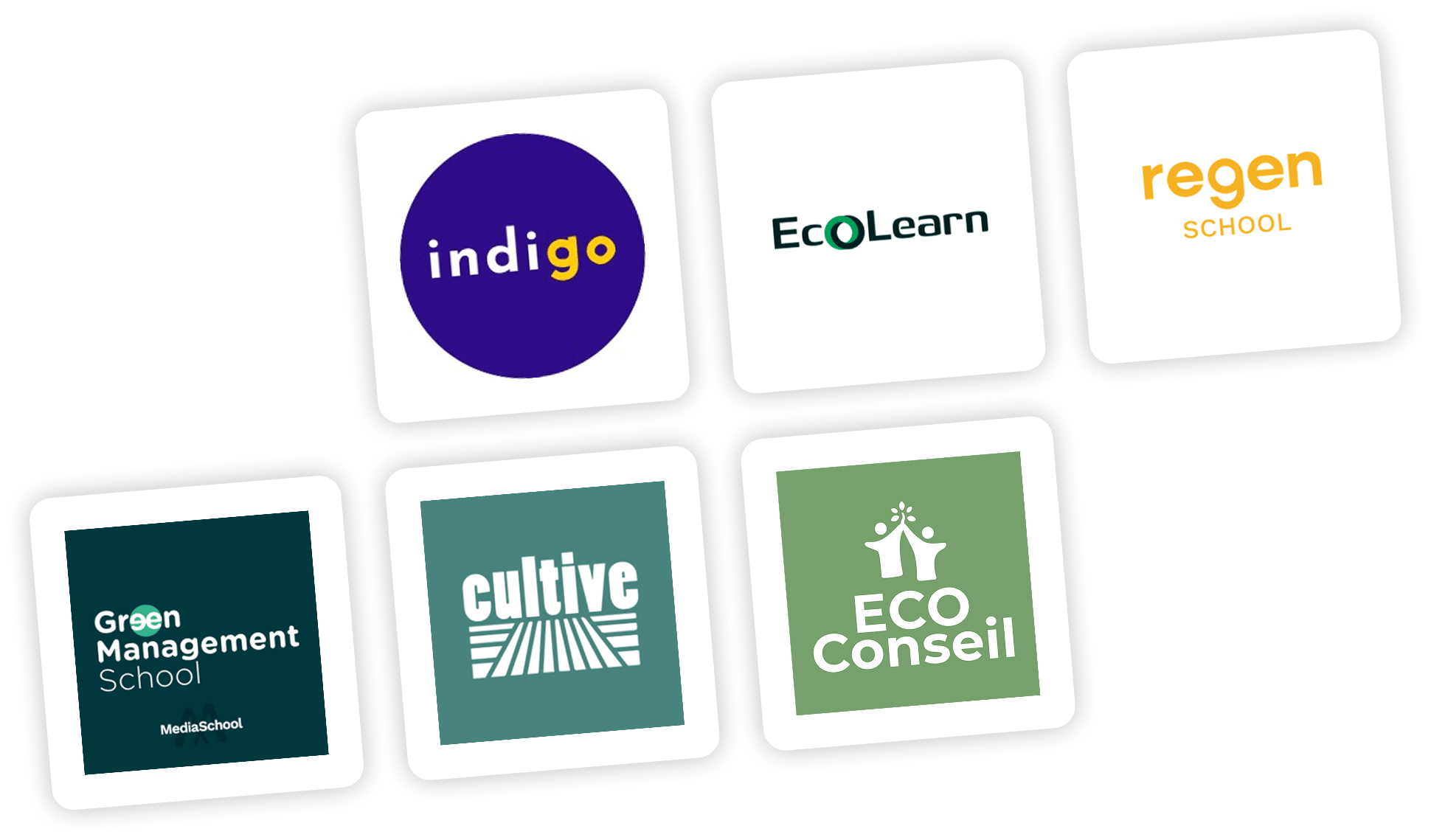Understand the life of an ecovillage through immersion !
The ecovillage of Pourgues, in Ariège
At the Pourgues ecovillage, you can learn about collective living and democratic education through immersive courses and stays. For Marjorie, who first founded a democratic school, creating an ecovillage was the logical next step in building a life more in line with her values, close to nature, in healthy and constructive relationships with other human beings. With about thirty people, all with their own experiences and skills, they have co-constructed this place around common values and share their way of life with all visitors curious to live an immersive experience, like an inhabitant of the Pourgues Ecovillage. What is life like in the ecovillage? What can we learn there? Marjorie tells us more!
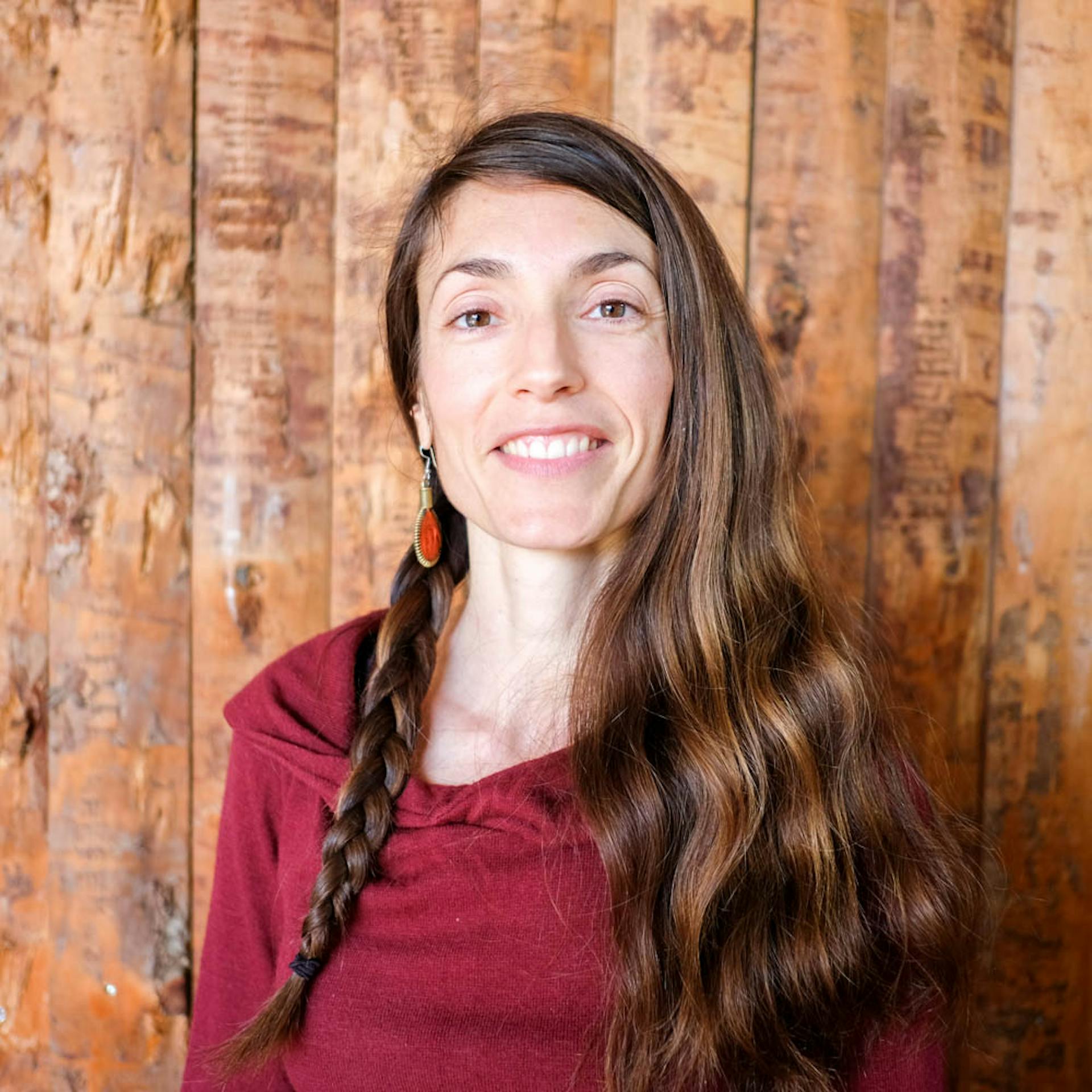
Where did you get the idea to start an ecovillage Marjorie ?
I worked with children in the after-school program, then as a teacher. Very quickly, I felt a deep crisis of meaning: why this rhythm? These programs? This authority? Why do we evaluate ourselves so much? Why are we so out of touch? As teachers, we were all caught up in this system without really understanding why. I tried to change the system from the inside, but the structure was very firm and there was little room for change. As I pulled the thread, I realized that I was questioning society as a whole, especially the meritocratic system. Then I discovered Sudbury schools, democratic schools in which students have as many rights as adults. I was fascinated to see the organization of these schools and especially to hear the testimonies of their students, who I found very mature.
I then resigned from the National Education to participate in the creation of "L'école dynamique", the first Sudbury school in France, whose model only existed in the United States and in Europe. In this school, everything is decompartmentalized, there are no more classrooms by age group, no more systematic teaching, no more predefined programs and timetables. We are in a democratic place where all children are mixed from 4 to 19 years old and have equal power regardless of their age. We start from the principle that learning is done by intrinsic motivation in a multi-age and democratic environment where the worlds mix without limits with a strict framework of rules for living together. Adults are present to supervise and accompany what emerges. We were 6 adults to create the company and, to collaborate together, we were inspired by Frédéric Laloux, who advocates organizations with less hierarchy and shared governance. Then many people became interested in the project and about 20 such schools were born.
"Why stop at that?" we said to ourselves with my companion Ramïn and a friend, Yohan. Living this double entrepreneurial and educational adventure, we felt like creating a place to live in which there would be two paradigms: democratic education and shared governance.
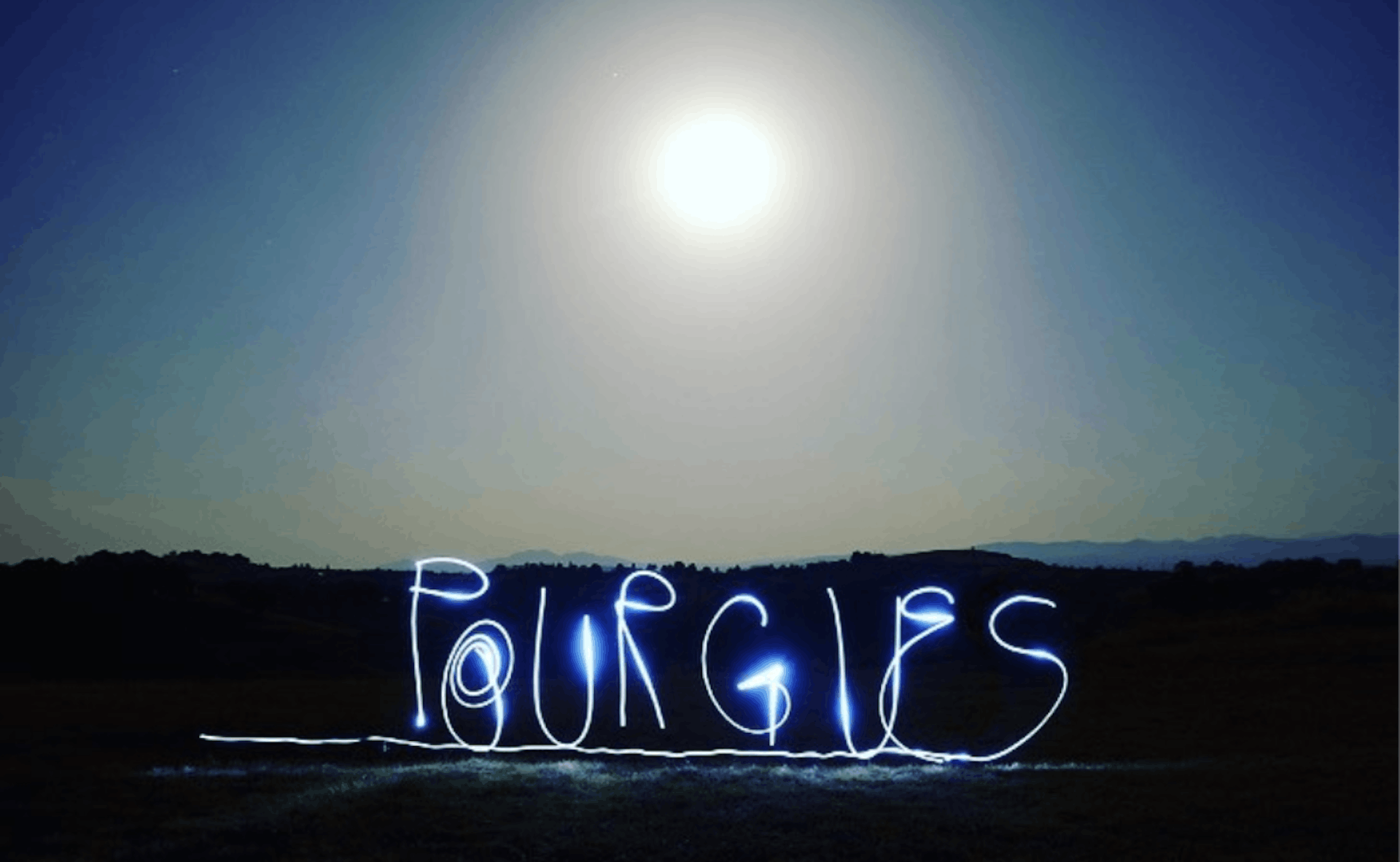
How did the creation of the ecovillage happen ?
When the 3 of us said yes, we posted on social media, "After the dynamic school, we want to launch the dynamic village, who's in?" And about 30 people showed up. We then met them and we met once a month to lay the foundations of our project and identify the people motivated to embody the values of freedom and responsibility that were the backbone of the project. After 2 to 3 months, we shared roles, including finding and visiting places. The first one we visited was "Pourgues" and it immediately seduced us. We then gathered with a whole group at the place and made a symbolic act: "all those who say yes, sign on this paper!" Those who were the most motivated signed. Then we opened the bank account and everyone could participate financially freely and without expectation. We managed to raise 960,000€ in total, thanks in particular to a very large contribution from one of the founders and a loan from the seller. We had little to add after that, the total investment being 1 million euros.
Once you had the venue, how did the first year go ?
The first year, we created the living collective. We looked at how we were going to live and function together. We used the tools of the Dynamic School to establish the common rules with a weekly village council, and then we integrated other tools to respond to the needs that emerged as we went along, especially in terms of conflict regulation. We lived on our savings, unemployment and other financial resources that first year. Then we wanted to open up and to make people discover our way of life : the trainings and the vacations started from the second year.
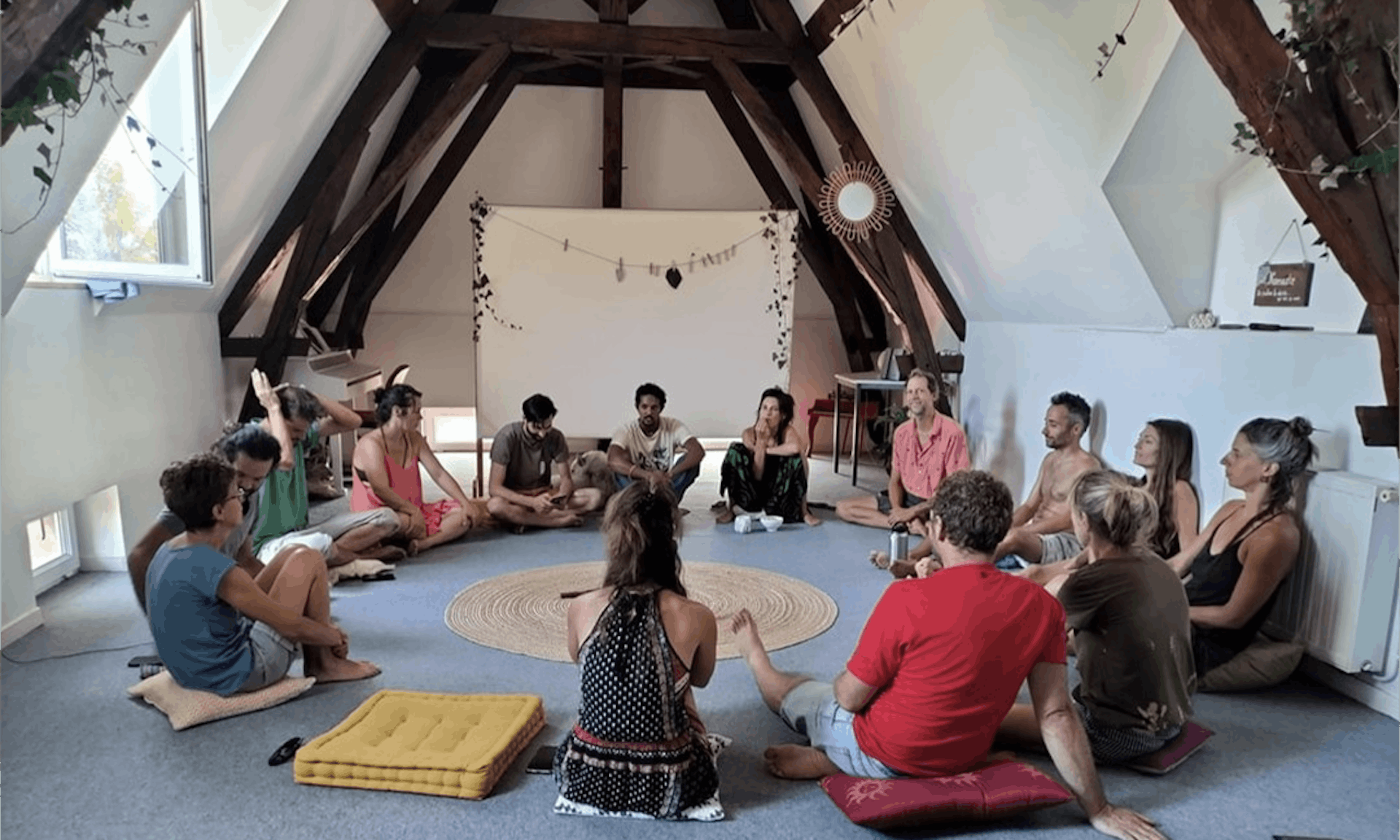
What kind of training and stays are offered?
The idea is that each villager can offer training programs based on his or her skills and abilities. For example, we organize trainings on democratic education, on collective life or on personal transformation. We also offer immersion stays on the theme of self-construction, well-being and yoga.
What do the visitors who come to your ecovillage look for?
Another way of living, another educational system for their children, for human ecology. They want to see how we live as a group, how we tell each other things, how we transform our conflicts. They also want to spend time in a paradisiacal place, on a hill, with a view of the Pyrenees, with fifty hectares of greenery, vegetable gardens, a kindergarten and a swimming pool...
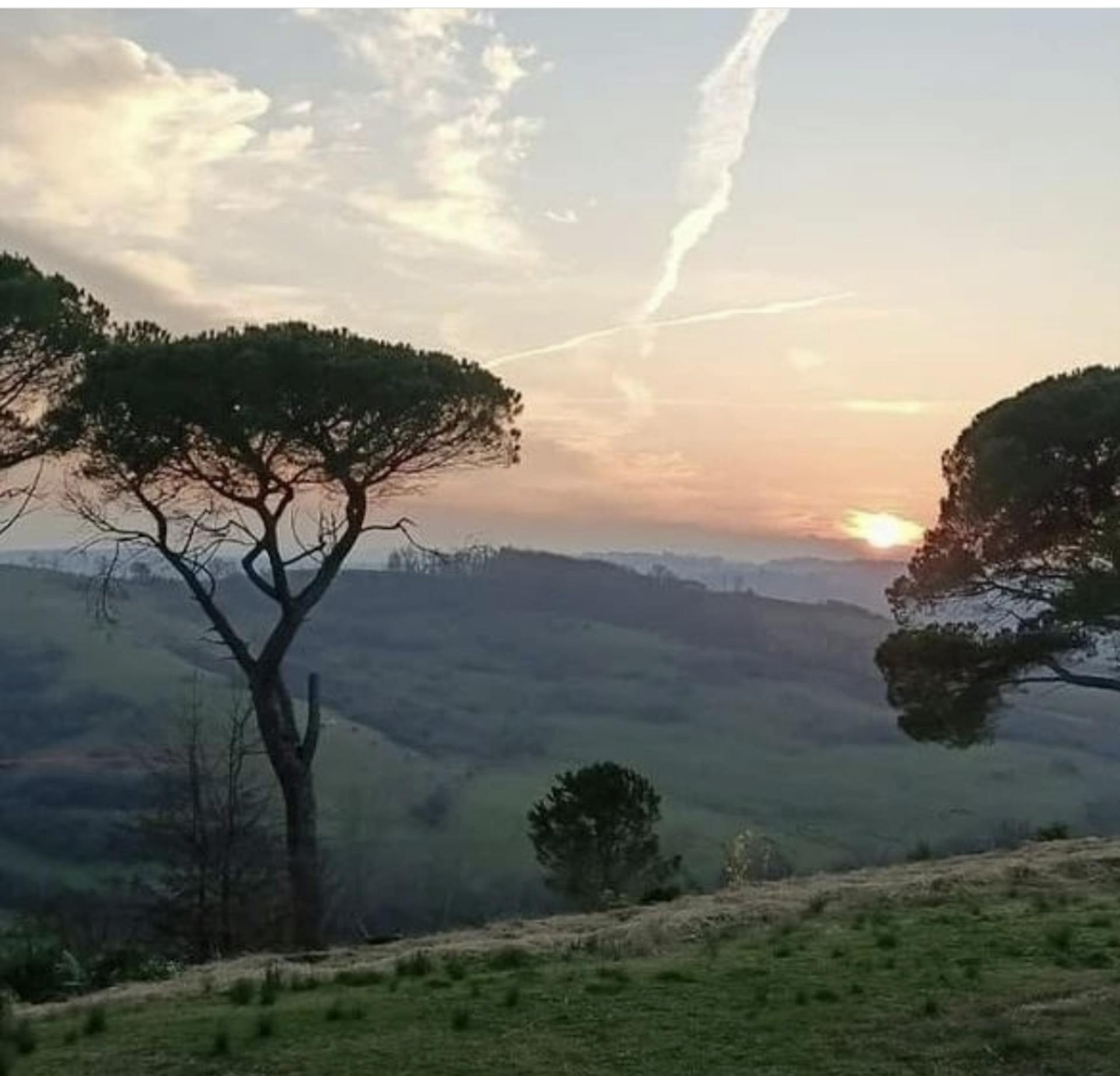
What is the feedback from people who have taken your trainings ?
There are people who have reorganized their lives with their children, who have even taken them out of traditional school. Some have created collectives, integrated our tools for restoring conflict in their family or in their company. I am thinking of one person in particular who has integrated "solicitation of opinions" into her company to give more power of decision and action to the teams and thus delegate her power as a manager.
What is your experience of this community life ?
It is an extraordinary and transforming experience. Sometimes it's hard, especially on a human level, because we haven't learned to be so human. We have learned to respect instructions, to obey and function, and not to do with the other, with the needs and limits of each person, while having administrative, legislative and economic constraints. This is real life! We are confronted with reality as it is, complex and changing. It is transformative, because it requires us to seek internal resources, to know ourselves well, and to listen to our limits. To be able to create a balance between one's personal and family bubble, the collective and the associates that we are.
What are the future projects of the ecovillage ?
A human renewal is coming: some people are leaving the collective to explore other horizons, others are settling in and bringing a fresh wind to the project and the group. In terms of new projects, we are going to have an educational farm and an associative café. We also have a project to recreate an ecosystem on our hills dried up by monoculture by creating a pond and a nourishing forest. And finally, in two years, we hope to open a yoga center.
To learn more
👉 Here are the trainings of the ecovillage of Pourgues
